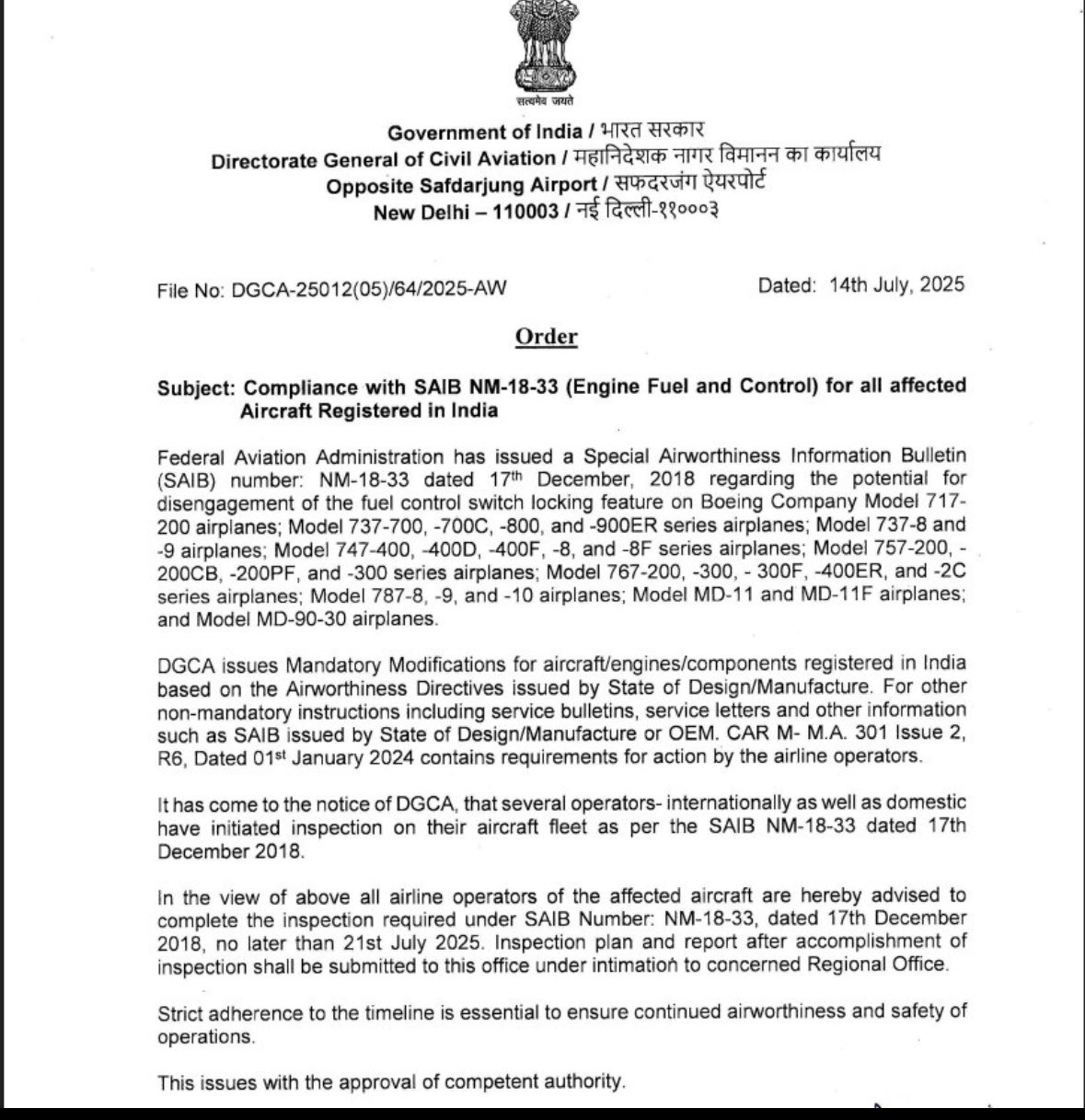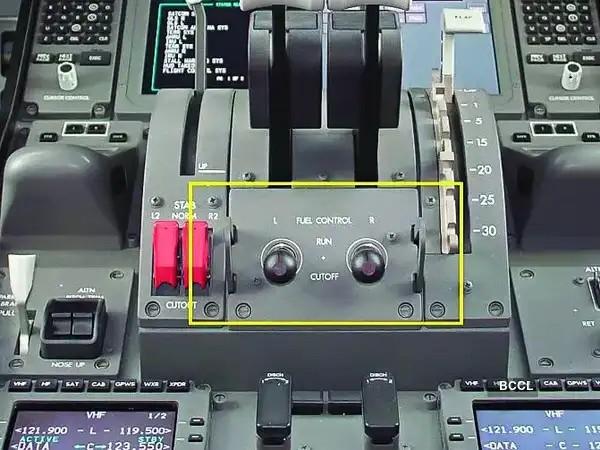Air India has concluded a round of precautionary inspections on all its Boeing 787-8 aircraft, declaring the fuel control switch (FCS) locking mechanisms free of faults. The move follows a directive from India’s aviation regulator in the wake of a fatal crash involving the same aircraft model.

Officials from the Tata-owned carrier said the inspections, completed over the weekend, were initiated following instructions from the Directorate General of Civil Aviation (DGCA), which had asked all operators of specific Boeing aircraft to inspect the FCS by 21 July.
“All our Boeing 787-8 aircraft have undergone throttle control module (TCM) replacement as per the Boeing maintenance schedule. The FCS is part of this module,” an Air India official confirmed. “Over the weekend, our engineering team initiated precautionary inspections on the locking mechanism of FCS on all our Boeing 787 aircraft. The inspections have been completed and no issues were found.”
This assurance comes in the wake of a damning report by the Aircraft Accident Investigation Bureau (AAIB), which attributed the cause of the Ahmedabad crash, involving a Boeing 787-8 Dreamliner, to the unintentional movement of fuel cutoff switches for both engines into the ‘cutoff’ position, one second apart, moments after takeoff. The crash, which claimed 260 lives, occurred within 32 seconds of liftoff.
According to the AAIB, the switches were fitted with part number ‘4TL837-3D’, which features a locking mechanism similar across various Boeing models. The sudden disengagement of the locking feature mid-flight caused both engines to lose power simultaneously.

Also read: Air India crash probe: Theory of absurdity
The AAIB report also noted that Air India had not acted on a 2018 bulletin issued by the United States Federal Aviation Administration (FAA), which warned of potential disengagement of fuel control switch locks on certain Boeing 737 aircraft. While the advisory was categorised as “non-mandatory”, the same switch design was later found on the 787-8 aircraft that crashed.
The DGCA’s directive this week enforced compliance with that FAA bulletin, six years after its original issuance.
This was not the first time Air India’s fleet had come under scrutiny for fuel system checks. The airline recently conducted similar inspections on its Boeing 737 Max aircraft, operated under its low-cost subsidiary Air India Express. “Almost the entire Boeing 737 Max fleet of Air India Express was also checked, and no issues were found,” the official added.
An internal communique on the FCS inspection status was circulated to Air India pilots by the airline’s flight operations team earlier this week.
Although the TCM and FCS were replaced in line with Boeing’s prescribed maintenance schedule, the incident has once again highlighted the fine line between compliance with optional safety advisories and the critical consequences of neglecting them.




